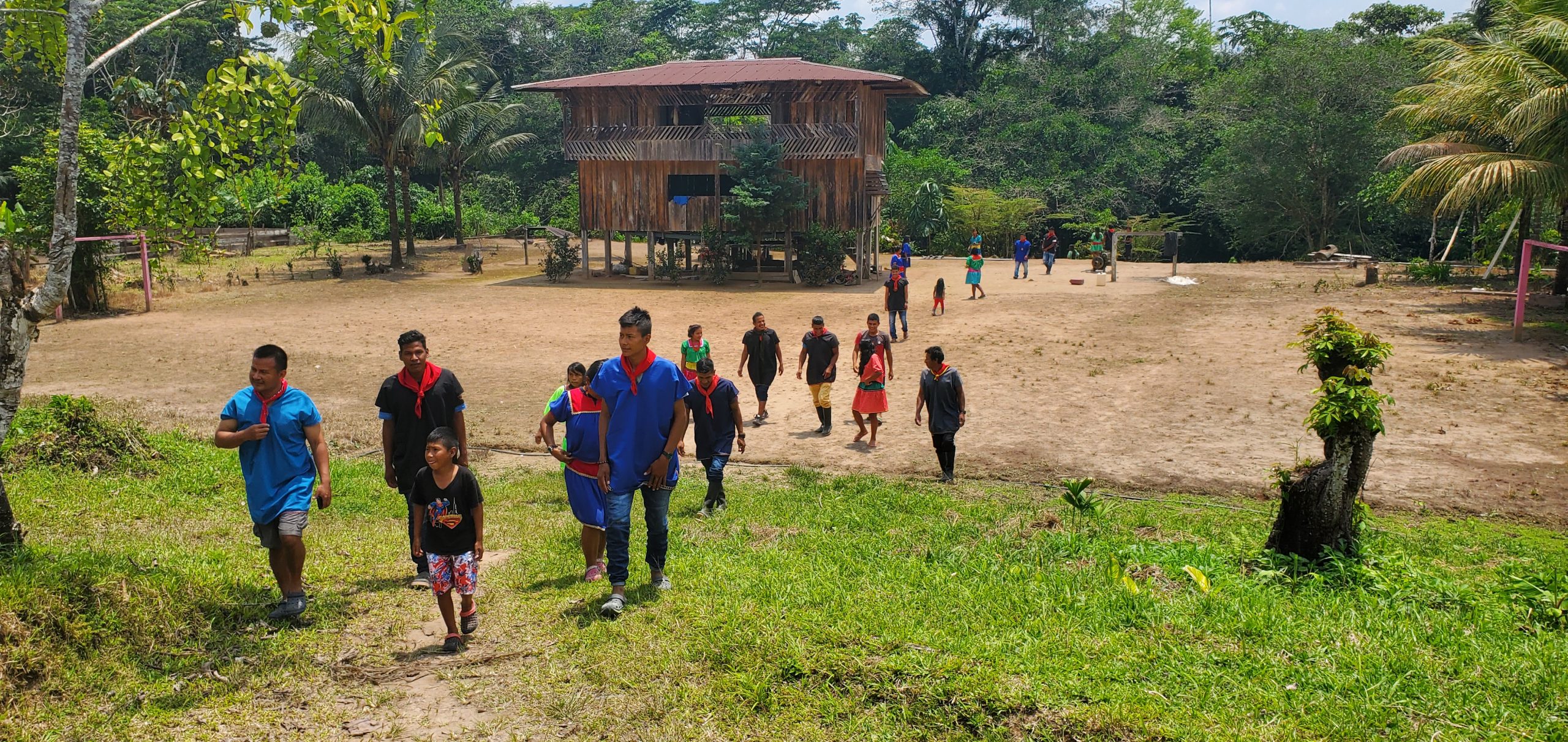Fundación Sobrevivencia Cofán
Protecting Indigenous Sovereignty Through Territorial Defense and Traditional Knowledge
about FSC
About Fundación Sobrevivencia Cofán
The Cofán have defended their Amazon homeland for over 500 years. Before Spanish conquest, they resisted Inka intrusions. Today, they face new threats: illegal gold mining introduces mercury into their rivers, oil extraction devastates traditional hunting grounds, and colonists clear ancient forests. Yet the Cofán Nation persists, their A’ingae language carrying ecological knowledge accumulated across generations.
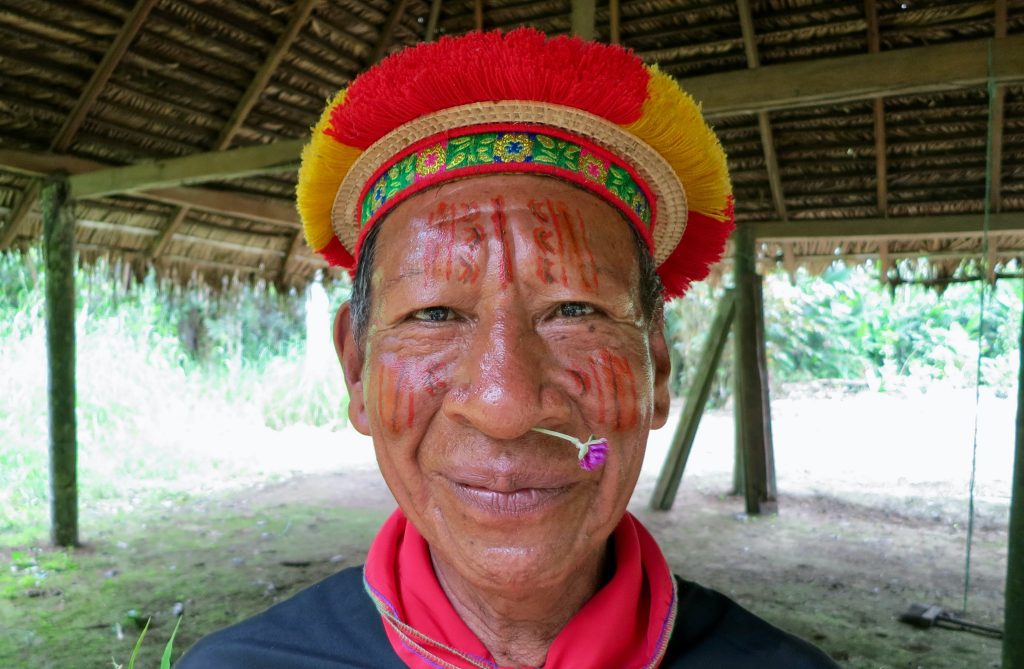
Founded in 1999, the Fundación Sobrevivencia Cofán emerged from this resistance. Under the long leadership of Randy Borman—born to missionary parents but raised by the Cofán community—FSC pioneered Indigenous-led conservation in Ecuador’s Amazon. Today, Felipe Borman continues this legacy, leading an organization that has proven Indigenous stewardship protects biodiversity more effectively than conventional conservation approaches.
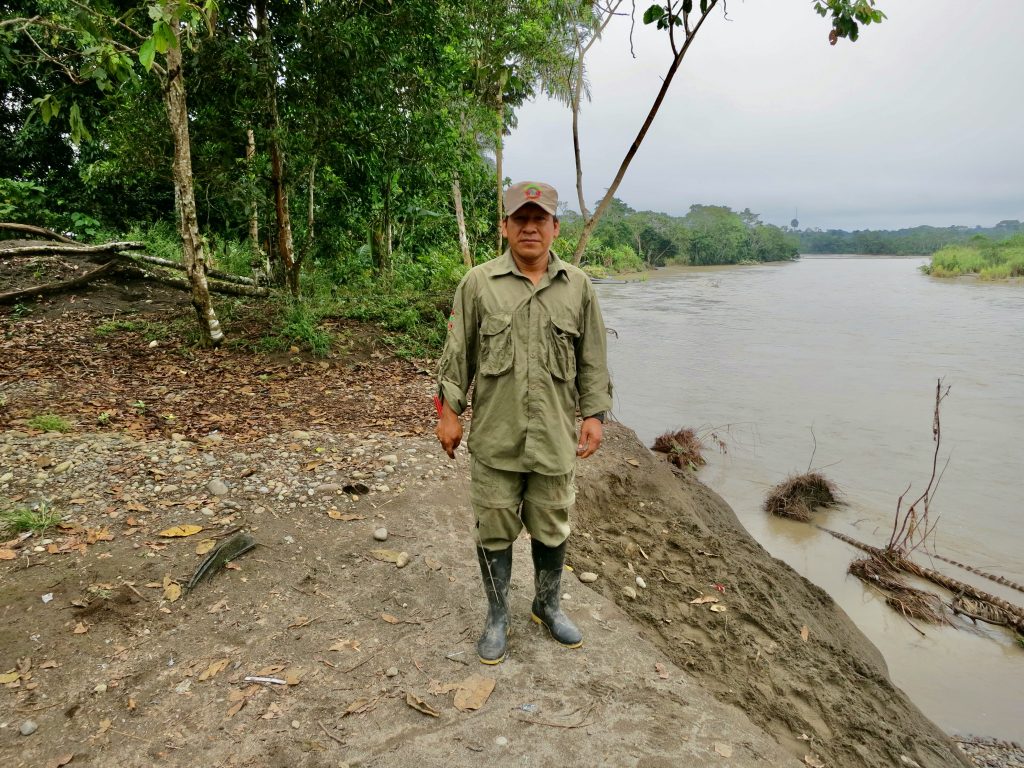
FSC operates four interconnected programs that strengthen Cofán sovereignty. Their Cofán Park Guard Program trains community members to patrol and protect territorial boundaries, conducting anti-mining operations and maintaining trail systems across vast forest areas. The Higher Education Program supports Cofán students in Quito, providing housing and educational opportunities while maintaining cultural connections. Their Health Program ensures community access to healthcare, combining traditional healing knowledge with contemporary medical practices. Most recently, the Life Boat Garden Program preserves traditional plant knowledge threatened by climate change and social transformation.
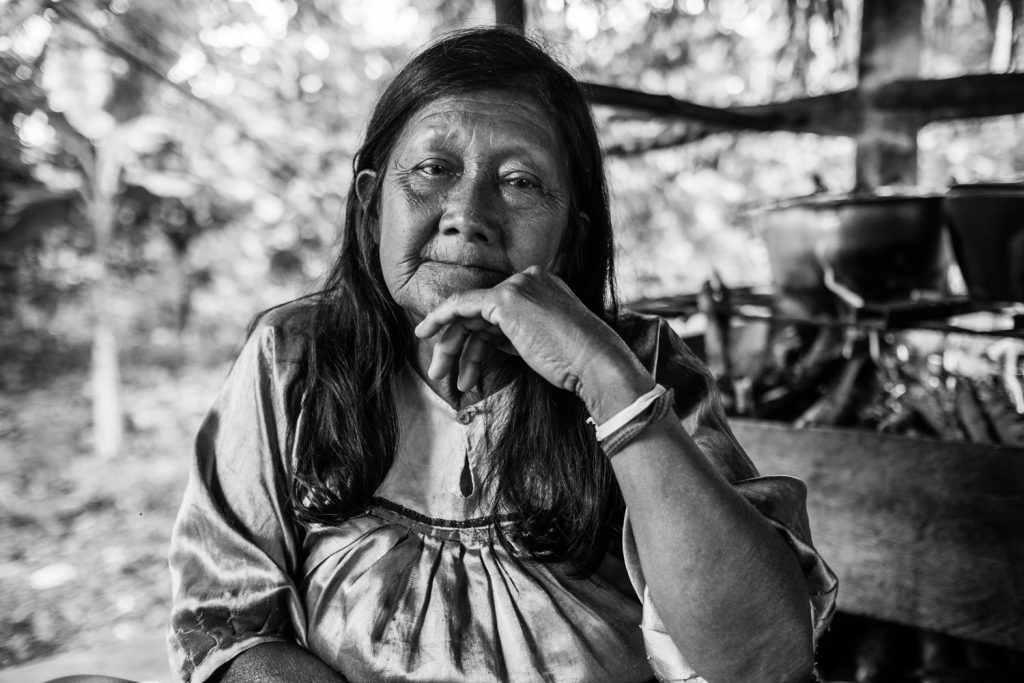
Each program reflects FSC’s understanding that cultural survival and environmental protection cannot be separated. The Cofán protect their forests because they are Cofán—and they remain Cofán because their forests survive.
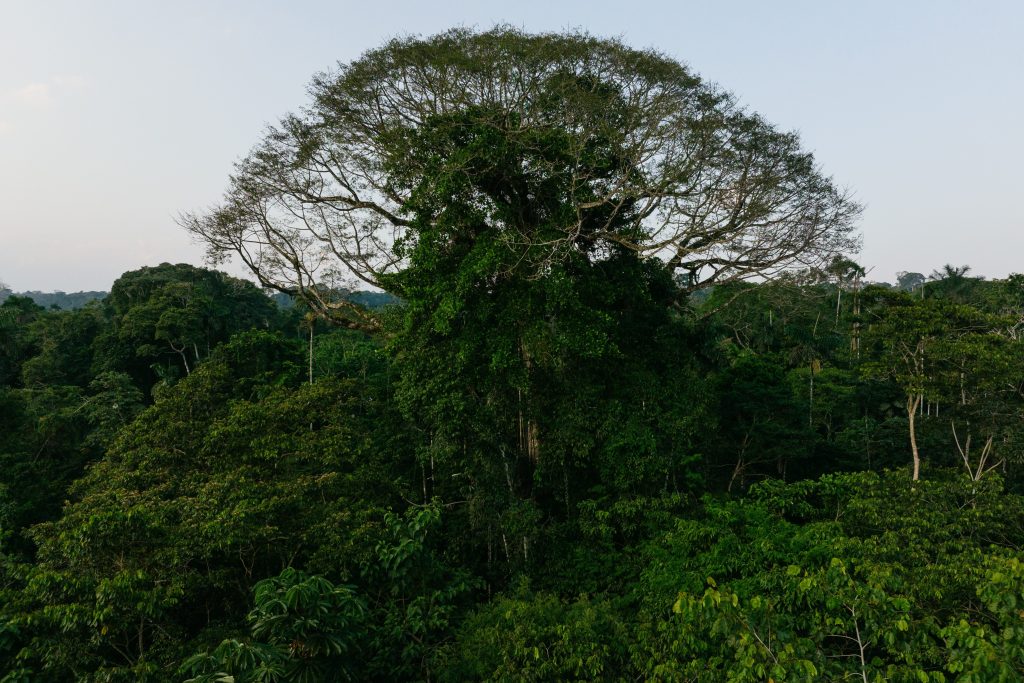
Our partnership
Our partnership
A Partnership Rooted in Territorial Justice
Our partnership with FSC began in 2022 when our founders learned about the work of the Fundación through the Field Museum. Azimuth provided financial support for the “Control, Management, and Protection of the Cofán-Bermejo Ecological Reserve“ not long after learning about the challenges they faced to protect their territory despite the efficacy they showed in comparison to government efforts. This support enabled FSC to remobilize Cofán park guards, clear boundary trails, and establish a strong presence in areas threatened by illegal mining. Despite legal recognition of Cofán territorial rights in 2001, the Ecuadorian government’s parallel administrative system had excluded Cofán participation, allowing miners and other extractive groups to operate with impunity.
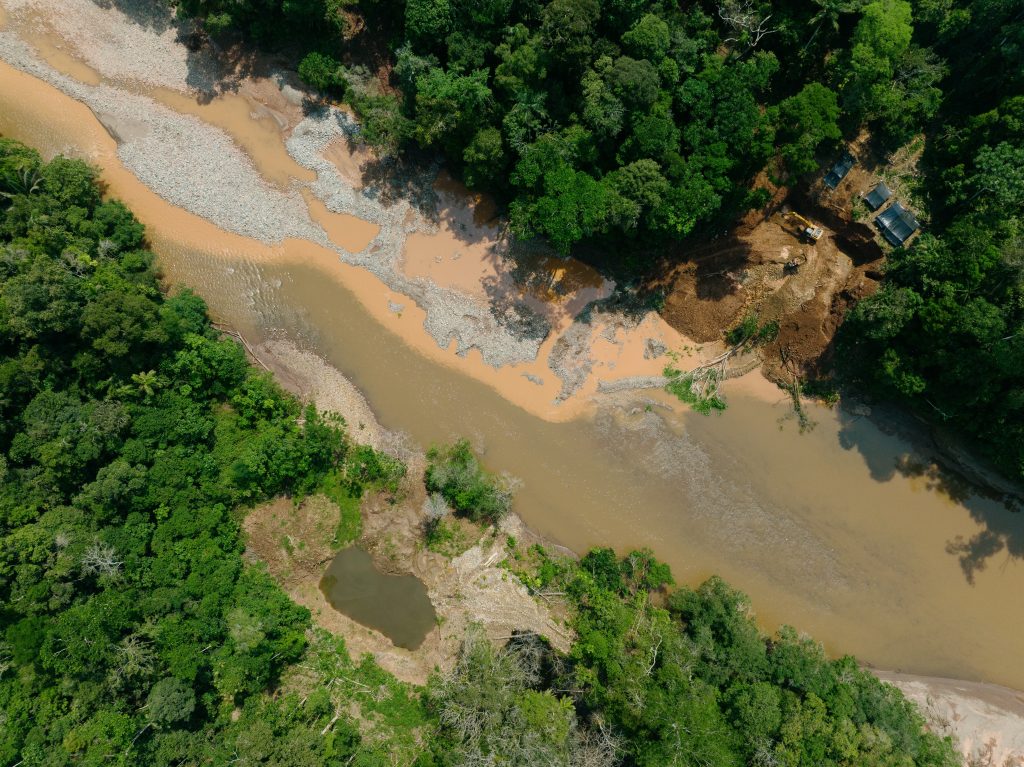
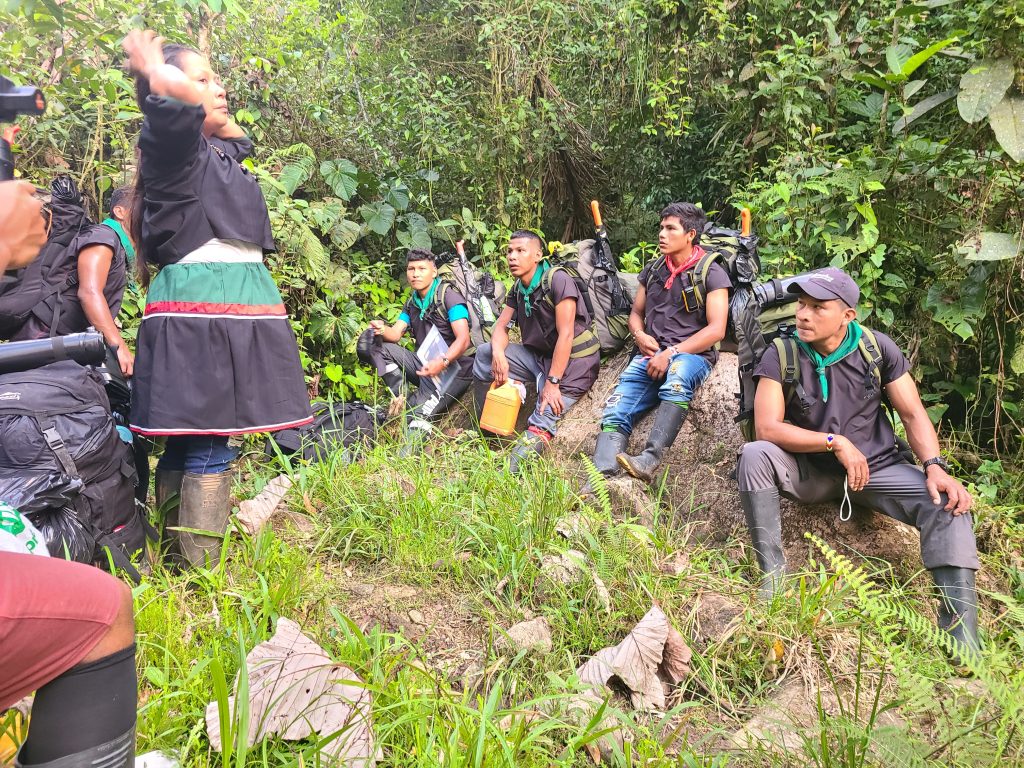
The results proved immediate and tangible. Trained park guards from the communities of Chandia Na’e and Avié cleared neglected boundary trails, confronted illegal miners, and demonstrated that Cofán stewardship could succeed where government management had failed. By November 2022, Felipe Borman reported significant progress: 17 community members had completed intensive training in logistics, environmental law, and first aid, then successfully cleared boundary trails that
adamantly say to the illegal miners that Cofán people are there, watching, and committed to stopping the violence and contamination.
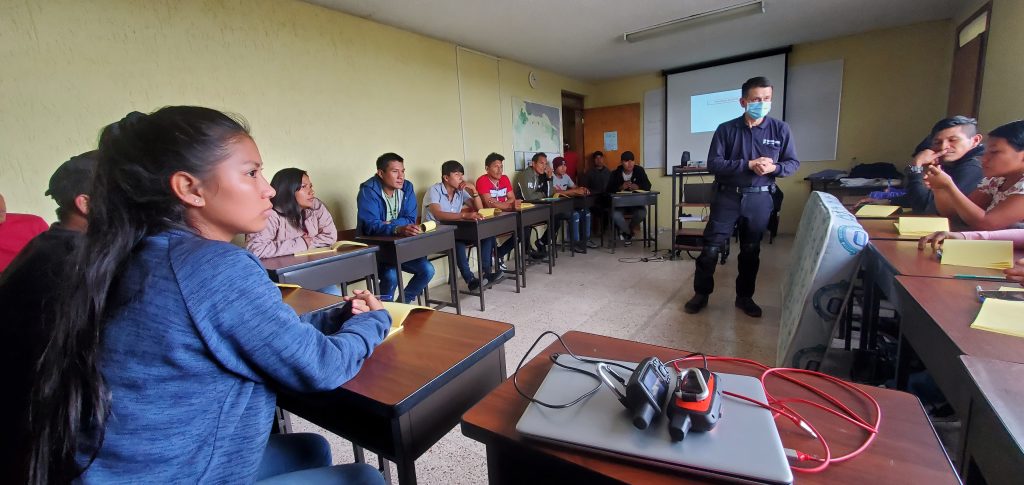
In 2023, Azimuth continued this support now to developed “Recovery of Cofán Territories in the Bermejo Region of Ecuador.” This funding allowed FSC to expand patrols, engage with government stakeholders, and develop comprehensive management plans that incorporate Cofán participation while securing sustainable funding. The project established FSC’s goal of regaining full Cofán control over the Cofán-Bermejo Ecological Reserve while creating new models for Indigenous-managed protected areas throughout Ecuador.
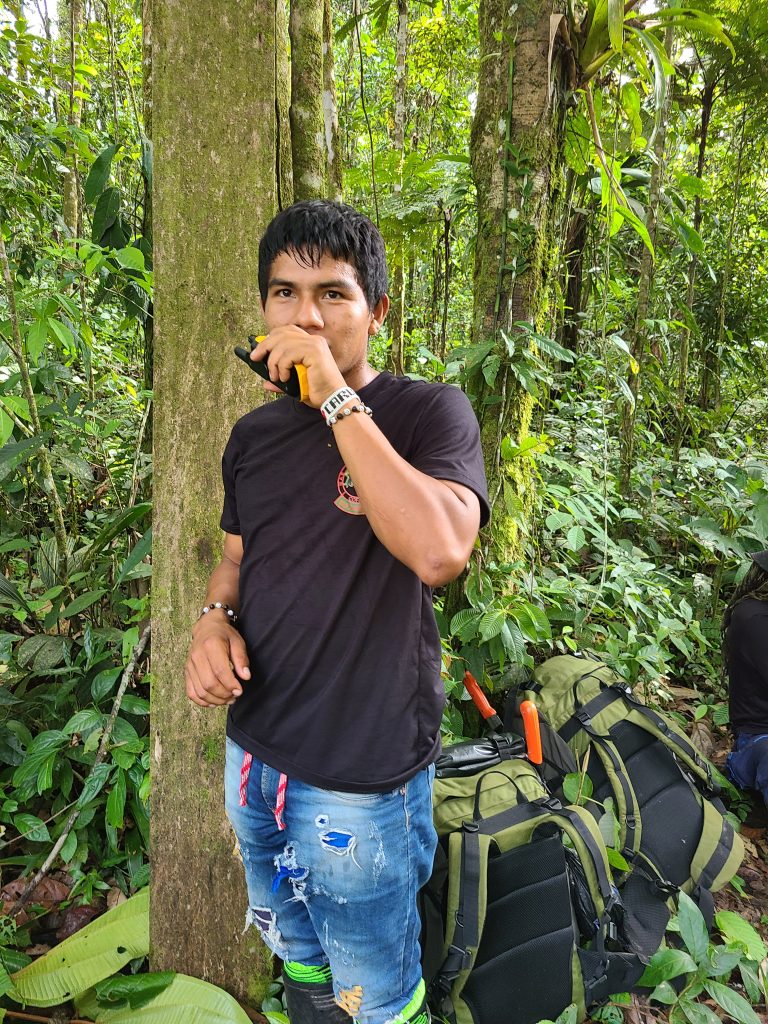
In 2025, Randy Borman’s passing marked the end of an era, but also revealed the strength of the leadership he had cultivated. Felipe Borman stepped forward with both determination and fresh perspectives, securing FSC’s most recent support from Azimuth in May — our commitment to supporting two critical initiatives that reflect FSC’s evolution during this transition period.
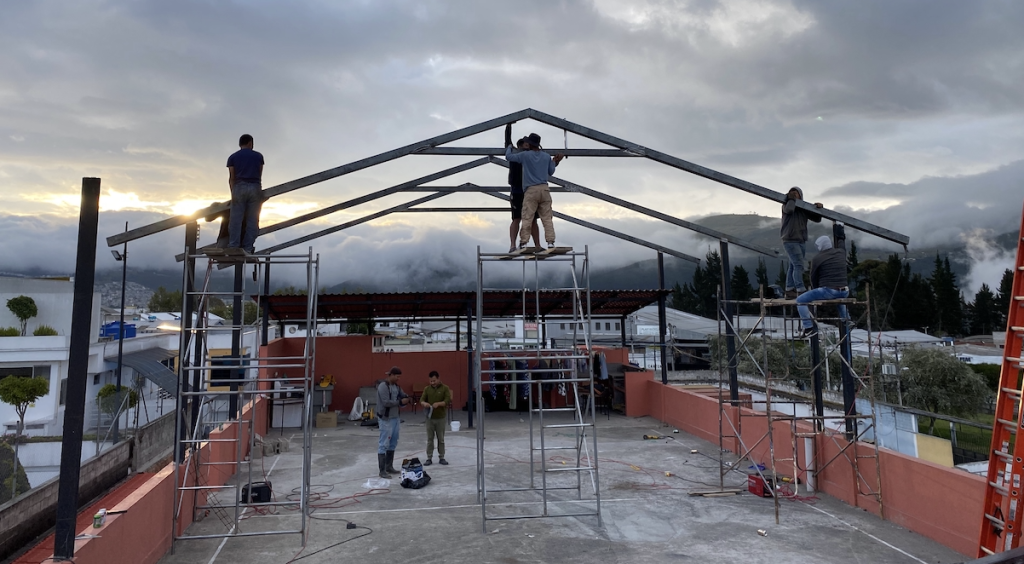
The first initiative focuses on enhancing FSC’s Quito headquarters, which has become increasingly vital as more Cofán families participate in the higher education program and seek medical care in the capital. The building currently houses six Cofán families while serving as headquarters for territorial protection activities. The enhancement will install a roof on the existing terrace to create covered space for classes and activities, and construct a small storage area to free up existing space. These improvements will better serve the growing number of Cofán people using the facility, particularly the more than 40 park guards who will receive training there.
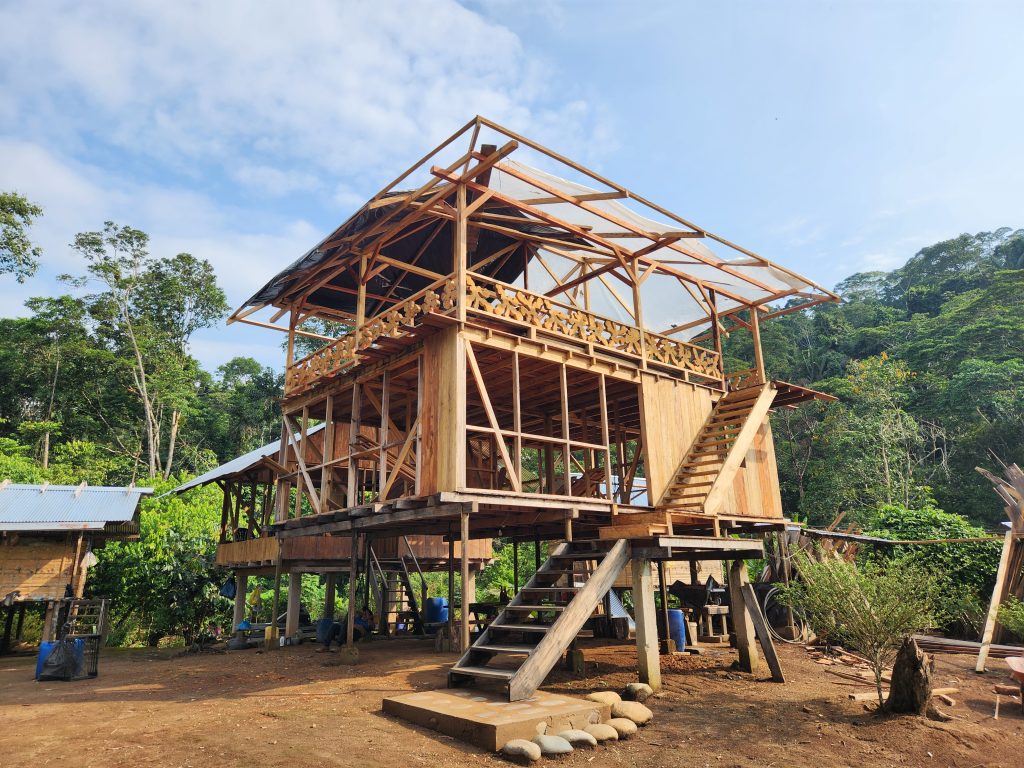
The second initiative completes the Life Boat Garden Visitor Center in Loreto, an offshoot from FSC’s Cultural Transmission project. The Life Boat Garden addresses the loss of ethnobotanical knowledge as some plants disappear due to climate change effects like prolonged flooding and droughts and the social changes inherent with urbanization and westernization. Amelia Quenama brought over 60 different plants traditionally used by the Cofán to this location at the foot of the Andes, where the cooler climate and reduced flood risk help ensure their survival. The visitor center completion will include solar power installation to provide electricity to the facility. Once finished, FSC plans to hold workshops with Cofán women from different communities to analyze the plants present in the garden and plan how to make the collection more complete and useful. The center will support the ongoing work to catalog these plants—documenting their uses, preparation methods, names, significance to the Cofán, and places of origin—for a small encyclopedia that can be used by the Cofán and others.
IMPACT
Impact
FSC’s territorial defense operations have achieved unprecedented conservation results through Indigenous-led management. Between 2000 and 2010, the organization secured legal rights to approximately 430,000 hectares (about 1 million acres) of Amazon rainforest. During their first decade of legal control, FSC achieved zero deforestation across this entire territory. In the same period, Ecuador’s Ministry of Environment lost approximately 15 percent of the areas under their control, demonstrating the superior effectiveness of Indigenous stewardship.
This protection was accomplished at extraordinary efficiency—approximately 40 cents per hectare per year, what Randy Borman called “one of the great bargains of the world.” The intact forest provided measurable economic benefits beyond conservation, with the protected 430,000 hectares reducing climate damage by several million dollars compared to deforested areas.
In 2003, FSC achieved a critical legal victory when the Ecuadorian government created Community Cofán Park Guards as official entities with the same rights and responsibilities as national park guards. This mandate established legal precedent for Indigenous territorial management while providing employment opportunities for community members who already possessed intimate forest knowledge that external guards would require years to develop.
The park guard program’s effectiveness attracted interest from other Indigenous groups. Secoya, Kichwa, Chachi, and campesino communities participated in FSC’s training courses and sought to implement similar programs in their own territories. However, these initiatives stalled due to lack of external funding, despite clear community demand and proven effectiveness.
FSC’s work challenges fundamental assumptions about conservation and development. As Randy Borman emphasized,
You’ve gotta really make the get past the stereotype of we’re just helping some Indians to preserve their culture out in the middle of no place.
The organization’s territorial protection efforts serve global environmental interests:
that’s not just a priority for us as a people nor for us as a foundation—it’s a priority for the world.
FSC’s territorial defense work operates at significant scale relative to community size. The Cofán Nation comprises approximately 1,200 people across Ecuador, making their protection of 430,000 hectares a remarkable achievement. The Cofán-Bermejo Reserve alone encompasses 55,000 hectares, while individual communities like Chandia Na’e and Avié remain very small, highlighting how limited Indigenous populations can effectively steward vast territories when provided with appropriate support and legal recognition.
Recent territorial protection efforts demonstrate both FSC’s continued effectiveness and persistent challenges. In November 2022, 17 community members from Chandia Na’e and Avié completed intensive training and successfully cleared boundary trails, re-establishing Cofán presence after the park guard program’s interruption in 2012-2013. In 2024, FSC deployed teams that cleared 30 kilometers of boundary trails in Río Cofanes territory, confronted illegal miners, discovered land squatters, and documented ongoing threats including illegal logging and armed group activity.
The Life Boat Garden, led by Cofán elder Amelia Quenama, has established over 60 traditional plant species in Loreto to address climate change impacts on cultural knowledge systems.
FSC’s infrastructure investments directly support territorial defense capabilities. The organization’s Quito headquarters houses six Cofán families participating in the higher education project while serving as training headquarters for more than 40 park guards, demonstrating how Indigenous organizations can build institutional capacity that serves multiple community needs while strengthening sovereignty.
Through sustained territorial presence and legal advocacy, FSC has proven that Indigenous management protects biodiversity more effectively than conventional approaches while providing essential environmental services for global benefit. Their work establishes concrete evidence that territorial sovereignty and environmental protection strengthen each other when Indigenous peoples control their ancestral lands.
Updates
Updates
News from the ground on projects, initiatives and collaborations.
Support
View this post on Instagram
Support
You can directly support FSC’s crucial work protecting ancestral lands and preserving irreplaceable cultural knowledge by visiting cofan.org/support-the-cause. US donors benefit from tax-deductible contributions through the Cofán Survival Fund, an independent US-based 501(c)(3) organization.
The Cofán’s work serves global interests. As Randy Borman emphasized,
the reason why we need that million Acres isn’t for the immediate food needs of the Cofán nation. It’s for the environmental services this is provided for the entire world.
Their track record proves Indigenous stewardship works: 430,000 hectares protected with zero deforestation at 40 cents per hectare per year, while government-managed areas lost 15 percent of their territory in the same period.
Supporting FSC means investing in proven conservation that protects one of Earth’s most critical ecosystems. The park guards clearing boundary trails, the women preserving traditional plants, the students maintaining cultural connections—each represents hope for environmental and cultural preservation worldwide.
As Randy Borman noted, this work represents “a priority for the world.” Support the Cofán’s leadership in defending the Amazon for future generations.
— Connect with FSC —
Fundación Sobrevivencia Cofán
Protecting Indigenous Sovereignty Through Territorial Defense and Traditional Knowledge
about FSC
About Fundación Sobrevivencia Cofán
The Cofán have defended their Amazon homeland for over 500 years. Before Spanish conquest, they resisted Inka intrusions. Today, they face new threats: illegal gold mining introduces mercury into their rivers, oil extraction devastates traditional hunting grounds, and colonists clear ancient forests. Yet the Cofán Nation persists, their A’ingae language carrying ecological knowledge accumulated across generations.

Founded in 1999, the Fundación Sobrevivencia Cofán emerged from this resistance. Under the long leadership of Randy Borman—born to missionary parents but raised by the Cofán community—FSC pioneered Indigenous-led conservation in Ecuador’s Amazon. Today, Felipe Borman continues this legacy, leading an organization that has proven Indigenous stewardship protects biodiversity more effectively than conventional conservation approaches.

FSC operates four interconnected programs that strengthen Cofán sovereignty. Their Cofán Park Guard Program trains community members to patrol and protect territorial boundaries, conducting anti-mining operations and maintaining trail systems across vast forest areas. The Higher Education Program supports Cofán students in Quito, providing housing and educational opportunities while maintaining cultural connections. Their Health Program ensures community access to healthcare, combining traditional healing knowledge with contemporary medical practices. Most recently, the Life Boat Garden Program preserves traditional plant knowledge threatened by climate change and social transformation.

Each program reflects FSC’s understanding that cultural survival and environmental protection cannot be separated. The Cofán protect their forests because they are Cofán—and they remain Cofán because their forests survive.

Our partnership
Our partnership
A Partnership Rooted in Territorial Justice
Our partnership with FSC began in 2022 when our founders learned about the work of the Fundación through the Field Museum. Azimuth provided financial support for the “Control, Management, and Protection of the Cofán-Bermejo Ecological Reserve“ not long after learning about the challenges they faced to protect their territory despite the efficacy they showed in comparison to government efforts. This support enabled FSC to remobilize Cofán park guards, clear boundary trails, and establish a strong presence in areas threatened by illegal mining. Despite legal recognition of Cofán territorial rights in 2001, the Ecuadorian government’s parallel administrative system had excluded Cofán participation, allowing miners and other extractive groups to operate with impunity.


The results proved immediate and tangible. Trained park guards from the communities of Chandia Na’e and Avié cleared neglected boundary trails, confronted illegal miners, and demonstrated that Cofán stewardship could succeed where government management had failed. By November 2022, Felipe Borman reported significant progress: 17 community members had completed intensive training in logistics, environmental law, and first aid, then successfully cleared boundary trails that
adamantly say to the illegal miners that Cofán people are there, watching, and committed to stopping the violence and contamination.

In 2023, Azimuth continued this support now to developed “Recovery of Cofán Territories in the Bermejo Region of Ecuador.” This funding allowed FSC to expand patrols, engage with government stakeholders, and develop comprehensive management plans that incorporate Cofán participation while securing sustainable funding. The project established FSC’s goal of regaining full Cofán control over the Cofán-Bermejo Ecological Reserve while creating new models for Indigenous-managed protected areas throughout Ecuador.

In 2025, Randy Borman’s passing marked the end of an era, but also revealed the strength of the leadership he had cultivated. Felipe Borman stepped forward with both determination and fresh perspectives, securing FSC’s most recent support from Azimuth in May — our commitment to supporting two critical initiatives that reflect FSC’s evolution during this transition period.

The first initiative focuses on enhancing FSC’s Quito headquarters, which has become increasingly vital as more Cofán families participate in the higher education program and seek medical care in the capital. The building currently houses six Cofán families while serving as headquarters for territorial protection activities. The enhancement will install a roof on the existing terrace to create covered space for classes and activities, and construct a small storage area to free up existing space. These improvements will better serve the growing number of Cofán people using the facility, particularly the more than 40 park guards who will receive training there.

The second initiative completes the Life Boat Garden Visitor Center in Loreto, an offshoot from FSC’s Cultural Transmission project. The Life Boat Garden addresses the loss of ethnobotanical knowledge as some plants disappear due to climate change effects like prolonged flooding and droughts and the social changes inherent with urbanization and westernization. Amelia Quenama brought over 60 different plants traditionally used by the Cofán to this location at the foot of the Andes, where the cooler climate and reduced flood risk help ensure their survival. The visitor center completion will include solar power installation to provide electricity to the facility. Once finished, FSC plans to hold workshops with Cofán women from different communities to analyze the plants present in the garden and plan how to make the collection more complete and useful. The center will support the ongoing work to catalog these plants—documenting their uses, preparation methods, names, significance to the Cofán, and places of origin—for a small encyclopedia that can be used by the Cofán and others.
IMPACT
Impact
FSC’s territorial defense operations have achieved unprecedented conservation results through Indigenous-led management. Between 2000 and 2010, the organization secured legal rights to approximately 430,000 hectares (about 1 million acres) of Amazon rainforest. During their first decade of legal control, FSC achieved zero deforestation across this entire territory. In the same period, Ecuador’s Ministry of Environment lost approximately 15 percent of the areas under their control, demonstrating the superior effectiveness of Indigenous stewardship.
This protection was accomplished at extraordinary efficiency—approximately 40 cents per hectare per year, what Randy Borman called “one of the great bargains of the world.” The intact forest provided measurable economic benefits beyond conservation, with the protected 430,000 hectares reducing climate damage by several million dollars compared to deforested areas.
In 2003, FSC achieved a critical legal victory when the Ecuadorian government created Community Cofán Park Guards as official entities with the same rights and responsibilities as national park guards. This mandate established legal precedent for Indigenous territorial management while providing employment opportunities for community members who already possessed intimate forest knowledge that external guards would require years to develop.
The park guard program’s effectiveness attracted interest from other Indigenous groups. Secoya, Kichwa, Chachi, and campesino communities participated in FSC’s training courses and sought to implement similar programs in their own territories. However, these initiatives stalled due to lack of external funding, despite clear community demand and proven effectiveness.
FSC’s work challenges fundamental assumptions about conservation and development. As Randy Borman emphasized,
You’ve gotta really make the get past the stereotype of we’re just helping some Indians to preserve their culture out in the middle of no place.
The organization’s territorial protection efforts serve global environmental interests:
that’s not just a priority for us as a people nor for us as a foundation—it’s a priority for the world.
FSC’s territorial defense work operates at significant scale relative to community size. The Cofán Nation comprises approximately 1,200 people across Ecuador, making their protection of 430,000 hectares a remarkable achievement. The Cofán-Bermejo Reserve alone encompasses 55,000 hectares, while individual communities like Chandia Na’e and Avié remain very small, highlighting how limited Indigenous populations can effectively steward vast territories when provided with appropriate support and legal recognition.
Recent territorial protection efforts demonstrate both FSC’s continued effectiveness and persistent challenges. In November 2022, 17 community members from Chandia Na’e and Avié completed intensive training and successfully cleared boundary trails, re-establishing Cofán presence after the park guard program’s interruption in 2012-2013. In 2024, FSC deployed teams that cleared 30 kilometers of boundary trails in Río Cofanes territory, confronted illegal miners, discovered land squatters, and documented ongoing threats including illegal logging and armed group activity.
The Life Boat Garden, led by Cofán elder Amelia Quenama, has established over 60 traditional plant species in Loreto to address climate change impacts on cultural knowledge systems.
FSC’s infrastructure investments directly support territorial defense capabilities. The organization’s Quito headquarters houses six Cofán families participating in the higher education project while serving as training headquarters for more than 40 park guards, demonstrating how Indigenous organizations can build institutional capacity that serves multiple community needs while strengthening sovereignty.
Through sustained territorial presence and legal advocacy, FSC has proven that Indigenous management protects biodiversity more effectively than conventional approaches while providing essential environmental services for global benefit. Their work establishes concrete evidence that territorial sovereignty and environmental protection strengthen each other when Indigenous peoples control their ancestral lands.
Updates
Updates
News from the ground on projects, initiatives and collaborations.
Support
View this post on Instagram
Support
You can directly support FSC’s crucial work protecting ancestral lands and preserving irreplaceable cultural knowledge by visiting cofan.org/support-the-cause. US donors benefit from tax-deductible contributions through the Cofán Survival Fund, an independent US-based 501(c)(3) organization.
The Cofán’s work serves global interests. As Randy Borman emphasized,
the reason why we need that million Acres isn’t for the immediate food needs of the Cofán nation. It’s for the environmental services this is provided for the entire world.
Their track record proves Indigenous stewardship works: 430,000 hectares protected with zero deforestation at 40 cents per hectare per year, while government-managed areas lost 15 percent of their territory in the same period.
Supporting FSC means investing in proven conservation that protects one of Earth’s most critical ecosystems. The park guards clearing boundary trails, the women preserving traditional plants, the students maintaining cultural connections—each represents hope for environmental and cultural preservation worldwide.
As Randy Borman noted, this work represents “a priority for the world.” Support the Cofán’s leadership in defending the Amazon for future generations.
— Connect with FSC —


